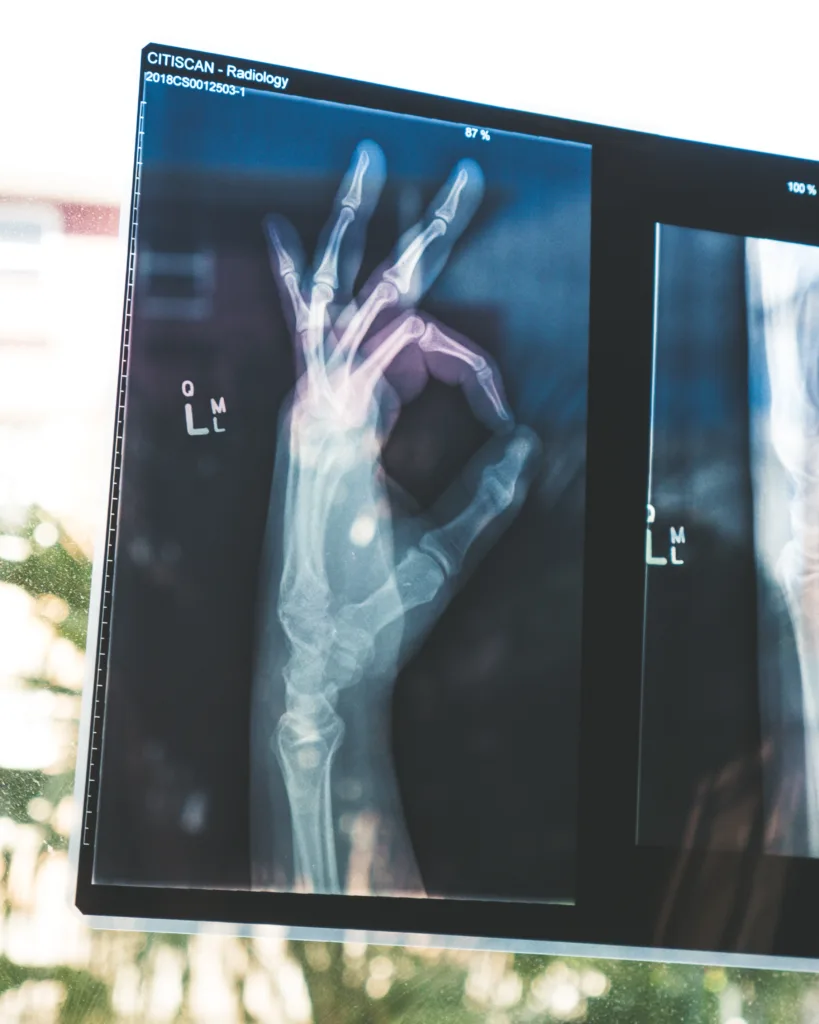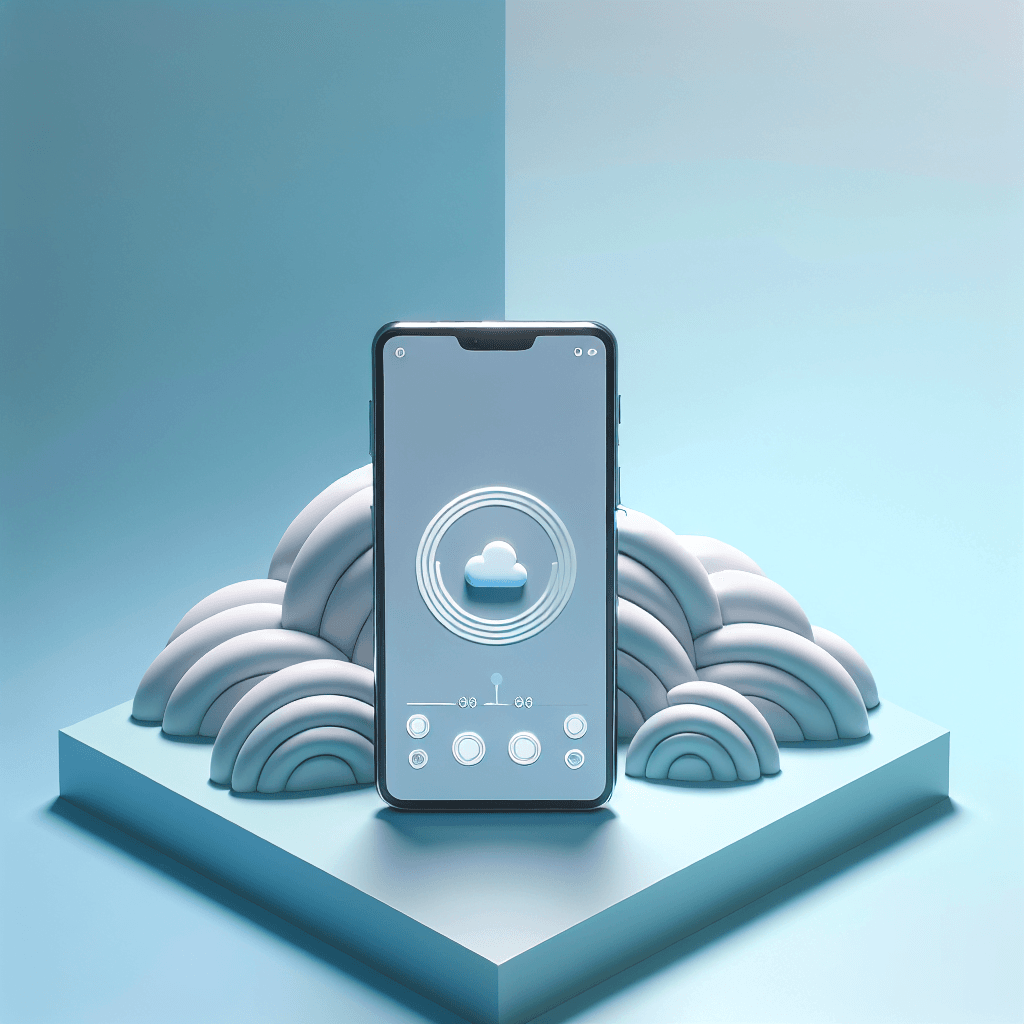Technology has become an integral part of our daily lives, impacting various aspects including our mental well-being. In the modern world, the question of how technology can support our mental health has gained significant attention. With the increasing prevalence of mental health issues, it has become crucial to explore the potential benefits that technology offers in this realm. This article aims to examine the various ways in which technology can provide support, such as mental health apps, online therapy programs, and wearable devices. By embracing the possibilities that technology brings, we can empower individuals to take control of their mental well-being in an increasingly digital age.

Table of Contents
Benefits of Technology for Mental Health
Increased access to resources
Technology has greatly increased access to resources for mental health support. With just a few clicks, you can find a plethora of information, articles, and self-help guides on various mental health conditions and strategies for managing them. The internet serves as a vast library, providing valuable resources that can educate and empower individuals to take control of their mental well-being.
Convenience and flexibility in seeking help
Technology offers unparalleled convenience and flexibility when it comes to seeking help for mental health concerns. Online therapy platforms have emerged, allowing individuals to access professional help from the comfort of their own homes, eliminating the need for in-person appointments and reducing the barriers associated with traditional therapy. This flexibility is particularly beneficial for those who have limited mobility, live in remote areas, or have busy schedules.
Monitoring and tracking tools
Thanks to technology, monitoring and tracking tools have become readily available for individuals seeking to track their mental health progress. From smartphone apps that track mood fluctuations to wearable devices that monitor heart rate and sleep patterns, these tools allow individuals to gain insights into their mental well-being, identify patterns, and make informed decisions regarding self-care.
Enhanced communication and support
Digital platforms have revolutionized communication and support systems for mental health. Online communities and mental health websites provide a space where individuals can connect with others who are going through similar experiences, share stories, and find support. Additionally, technology has enabled the creation of virtual support groups and counseling sessions, offering individuals a safe and accessible space to discuss their concerns and receive guidance from mental health professionals or peers.
Digital Therapeutic Solutions
Online therapy platforms
Online therapy platforms have gained popularity in recent years, providing individuals with a convenient and confidential way to access mental health professionals. Through secure video consultations or text-based messaging, individuals can engage in therapy sessions with licensed therapists from the comfort of their own homes. These platforms often offer a range of therapeutic modalities, including cognitive-behavioral therapy (CBT), dialectical behavior therapy (DBT), and acceptance and commitment therapy (ACT), catering to individuals’ diverse needs.
Mental health apps
The rise of mobile technology has led to the development of numerous mental health apps, offering a wide range of resources and tools to support mental well-being. These apps often include features such as mood tracking, guided meditation, cognitive behavioral exercises, and stress management techniques. They can help individuals manage symptoms of anxiety, depression, and other mental health conditions, providing ongoing support and guidance in the palm of their hands.
Virtual reality for exposure therapy
Virtual reality (VR) technology has proven to be a valuable tool in exposure therapy, a technique used to treat phobias and anxiety disorders. By creating realistic virtual environments, individuals can safely confront their fears in a controlled setting. VR exposure therapy has shown promising results, allowing individuals to gradually face their fears and develop coping strategies, without the need for real-life exposure that may be challenging or inaccessible.
Technology-Assisted Self-Help
Mental health websites and online communities
Mental health websites and online communities offer a wealth of information, guidance, and support for individuals seeking self-help resources. These platforms provide articles, forums, and chat rooms where individuals can explore various mental health topics, share their experiences, and connect with others who may be facing similar challenges. Such online communities foster a sense of belonging and provide a space for individuals to find comfort and understanding.
Self-help apps and chatbots
Self-help apps and chatbots have become increasingly popular as a technology-assisted self-help tool. These apps provide interactive exercises, guided self-reflection, and coping strategies for managing mental health symptoms. Chatbots, equipped with natural language processing capabilities, can engage in meaningful conversations and provide support to individuals in real-time. While they are not a substitute for professional help, self-help apps and chatbots can be beneficial in providing immediate assistance and promoting self-care.
Digital mindfulness and meditation tools
Technology has facilitated the integration of mindfulness and meditation practices into everyday life. Digital mindfulness and meditation tools, such as mobile apps or online platforms, offer guided meditation sessions, breathing exercises, and relaxation techniques. These tools allow individuals to incorporate mindfulness into their daily routine, helping them reduce stress, increase self-awareness, and improve overall mental well-being.
Machine Learning and AI in Mental Health
Improved diagnostics and personalized treatment
Machine learning and AI algorithms hold great promise in improving the accuracy and efficiency of mental health diagnostics. By analyzing large datasets and patterns, these technologies can assist mental health professionals in making more accurate diagnoses and developing personalized treatment plans. Machine learning algorithms can identify patterns, risk factors, and symptoms in individuals, enabling mental health professionals to tailor treatments that meet their specific needs.
Predictive analytics for relapse prevention
Technology-powered predictive analytics can be instrumental in identifying potential relapse indicators in individuals with mental health conditions. By analyzing various data points, such as mood fluctuations, sleep patterns, or social media activity, machine learning algorithms can detect warning signs of an upcoming relapse. With this information, mental health professionals can intervene early, providing timely support and preventive measures to minimize the risk of relapse.
Chatbots and virtual assistants for support
Chatbots and virtual assistants equipped with AI technologies can provide continuous support and guidance to individuals struggling with mental health issues. These virtual entities can engage in conversations, answer questions, and provide resources and coping strategies. While they do not replace human interaction, chatbots and virtual assistants can complement traditional therapies, offering immediate assistance during times of need.
Natural language processing for sentiment analysis
Natural language processing (NLP) techniques can be used to analyze and interpret written or spoken language to infer sentiment. In the field of mental health, NLP can help mental health professionals assess an individual’s emotional state by analyzing their texts, social media posts, or voice recordings. This technology can be valuable in identifying fluctuations in mood, detecting signs of distress, and enabling timely interventions.

Telemedicine and Telepsychiatry
Remote access to professional mental health services
Telemedicine and telepsychiatry have transformed the way individuals access professional mental health services. Through secure video consultations, individuals can now connect with mental health professionals regardless of their geographical location. This remote access is particularly advantageous for individuals living in rural areas or those facing transportation barriers, providing them with the opportunity to receive timely and necessary care.
Video consultations and therapy sessions
Video consultations and therapy sessions have become a popular alternative to in-person appointments, offering a level of convenience and accessibility that was previously unimaginable. Through secure video platforms, individuals can engage in therapeutic sessions from the comfort of their own homes, eliminating the need to travel to a physical location. This mode of communication allows for meaningful interactions between mental health professionals and their clients, fostering a strong therapeutic alliance.
Technology for Stress Management
Stress tracking devices and wearables
Stress tracking devices and wearables are becoming increasingly popular tools for managing stress. These devices monitor various physiological parameters, such as heart rate, galvanic skin response, and sleep patterns, providing individuals with insights into their stress levels. By tracking stress patterns, individuals can identify triggers and make lifestyle adjustments to better manage their stress levels and promote overall well-being.
Biofeedback and relaxation apps
Biofeedback and relaxation apps utilize technology to provide individuals with real-time feedback on their physiological responses. By connecting sensors to the body, these apps can detect physiological changes related to stress and guide individuals through relaxation exercises to promote stress reduction. Biofeedback apps can help individuals become more aware of their body’s response to stress and teach them techniques to self-regulate and manage their stress levels.
Smartphone-based interventions for stress reduction
Smartphone-based interventions have emerged as convenient tools for stress reduction. These interventions often consist of interactive modules, guided exercises, and strategies for stress management. With the ubiquity of smartphones, individuals can access these interventions whenever needed, making it easier to incorporate stress-reducing practices into their daily routines.

Digital Mental Health during COVID-19
Virtual mental health services during lockdowns
The COVID-19 pandemic has necessitated the implementation of virtual mental health services to ensure ongoing access to care during lockdowns and the practice of social distancing. Mental health professionals have rapidly transitioned to providing online consultations and therapy sessions, allowing individuals to receive the support they need while minimizing the risk of exposure to the virus. Virtual services have been critical in maintaining continuity of care during these challenging times.
Online support groups and counseling
The pandemic has led to social isolation and increased feelings of loneliness for many individuals. Online support groups and counseling have offered a vital source of connection and support during these difficult times. Individuals can participate in virtual support groups, connect with others who are facing similar challenges, and find solace in sharing their experiences. Online counseling has also provided a lifeline for those in need of professional support, ensuring that mental health services remain accessible despite the physical limitations caused by the pandemic.
Digital mental health tools for coping with pandemic-related stress
To help individuals cope with increased stress and anxiety related to the pandemic, digital mental health tools have been developed specifically for this purpose. These tools often include modules addressing pandemic-related stressors, such as uncertainty, fear, and change. They provide evidence-based strategies, coping mechanisms, and mindfulness exercises to help individuals navigate these challenging times and build resilience.
Ethical Considerations
Data privacy and security
As technology plays an increasingly prominent role in mental health care, ensuring the privacy and security of individuals’ data becomes critical. Mental health professionals and technology developers must adhere to strict privacy regulations and implement robust security measures to protect sensitive information. Encryption, secure data storage, and informed consent protocols are essential to maintain individuals’ trust and confidentiality.
Maintaining human connection and empathy
While technology offers numerous benefits for mental health, it is crucial to remember the importance of human connection and empathy. Despite the convenience and accessibility of digital platforms, they cannot completely replace the warmth and understanding that come from face-to-face interactions. Mental health professionals must strike a balance between utilizing technology and maintaining meaningful connections to ensure individuals receive the compassionate support they need.
Ensuring accessibility for all
As technology advances, it is crucial to ensure that digital mental health resources are accessible to all individuals, regardless of socioeconomic status, age, or disability. Accessibility considerations include user-friendly interfaces, multi-language options, and compatibility with various devices. Bridging the digital divide is critical to ensure that everyone has equal access to mental health support and resources.
Potential for reliance on technology
While technology can significantly enhance mental health care, it is important to recognize the potential for over-reliance on technology. While self-help apps and chatbots can provide immediate support, they should not replace professional therapy when necessary. Mental health professionals should be vigilant in assessing individuals’ needs and providing appropriate care. Technology should be seen as a tool that complements traditional care, rather than a substitute for it.

The Role of Mental Health Professionals
Integration of technology into practice
As technology continues to advance, mental health professionals must integrate these advancements into their practice. Training and education on the use of technology in mental health care is essential for mental health professionals to effectively incorporate digital tools into their treatment plans. Embracing technology can enhance their practice, improve patient outcomes, and extend their reach to underserved populations.
Training and education for professionals
To ensure mental health professionals are equipped to leverage technology, ongoing training and education are crucial. Mental health professionals should stay updated on the latest technological advancements, research findings, and ethical considerations in the field. Training programs can provide mental health professionals with the necessary knowledge and skills to utilize technology appropriately and effectively in their practice.
Ethical guidelines and standards for technology use
The rapid integration of technology in mental health care necessitates the development of ethical guidelines and standards. These guidelines should address issues such as data privacy, informed consent, responsible use of AI algorithms, and maintaining the therapeutic alliance. Mental health professionals must adhere to these guidelines to ensure that technology is used in an ethical and responsible manner, promoting the well-being and safety of their clients.
Conclusion
Technology has transformed the landscape of mental health care, providing a wealth of resources and tools to support individuals on their mental health journeys. From increased access to resources and flexible therapy options to innovative self-help tools and machine learning advancements, technology has the potential to revolutionize mental health care. However, it is crucial that mental health professionals and technology developers navigate these advancements ethically and responsibly, ensuring that individuals receive the necessary support while maintaining their privacy and dignity. By leveraging technology appropriately, mental health professionals can harness its benefits to improve outcomes, expand access to care, and empower individuals to lead mentally healthy lives in the modern world.


